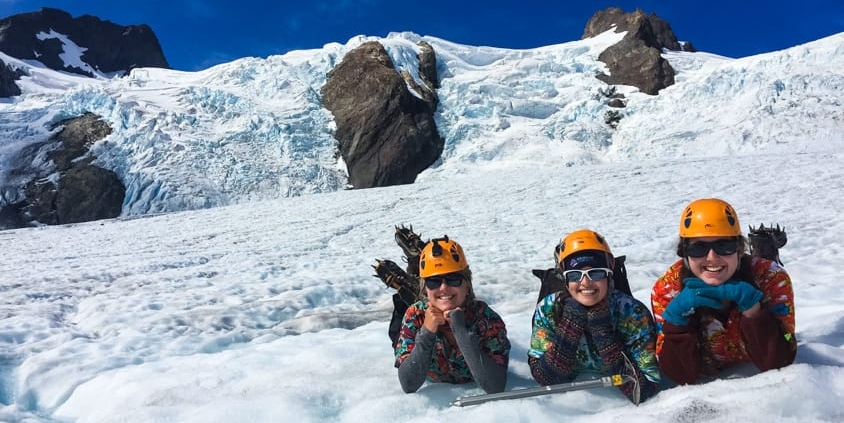Second Thoughts Can Be Natural
We’d like to share an observation that we have made over the years, a phenomenon that often happens to students between their first and second summer of Adventure Treks:
- After the first adventure ends, a student enthusiastically registers for next summer and a brand-new adventure destination. They are excited to come back to see their friends, their instructors, improve outdoor skills, and see new places. That student might have had a few challenging days of adjustment to outdoor life at the start of the trip, but ended up proud of everything they had accomplished, thrilled to be part of a close community experience, and even “camp sick” when it was time to return home.
- Several months later, the same student comes to their parents and says, “I’m not sure about returning to Adventure Treks.” The parents are confused; what has changed?
- Sometimes, those parents shrug their shoulders and consider cancelling the trip. They don’t want to “force” their child to return.
Number 3 is a loving and understandable reaction, but we want to suggest an alternative.
Before we do so, let us describe what is actually happening. This is what we call the “warrior/worrier” story. In short, we believe that everyone has a warrior who lives on one shoulder, and a worrier on the other. The warrior wants to embrace opportunities, try new things, and go on adventures. The worrier, on the other hand, wants to avoid anything uncomfortable and fears the potential for public failure. We suggest students listen to their warrior, and not the worrier.
The student who wants to return is listening to the warrior, thinking about new friendships, new outdoor adventures, and the caring and cool instructors. But as the year goes on, the worrier starts to whisper: “Remember those days without a shower?” or “That one hike that was really hard.” Or “do you really want to sleep in a tent instead of your bed?” Sometimes, the worrier changes the memory of the Adventure Treks experience, and suddenly, the confident and excited student begins to believe that they were homesick most of the time, and the struggle from that hard hike or challenging activity starts to loom larger than the successes and resilience achieved from overcoming obstacles.
At this moment, parents have an interesting choice. The easy one is to simply say, “I do not want to force my child to return.” Another—what we suggest—is more nuanced: “I want to feed my child’s warrior and weaken the worrier.”
This does not mean ignoring your child’s concerns, but it does mean helping redirect thoughts to the fun, friends, and growth at Adventure Treks. Ask your child about what they loved at AT. If you know who their favorite friends and instructors were, ask about them. Look at the photos or 2015 summer memories video.
Here are some good questions:
- What was your favorite memory of AT?
- Tell me about ________ [a great AT friend] again.
- What was your favorite activity?
- Tell me about a favorite instructor?
- How is what you learned last summer helping you out at school and home?
We also encourage you to call us and ask any questions if you have any lingering concerns or want advice. If you do think that your child encountered an issue that is concerning, we want to partner with you to turn this concern into an opportunity for both of us.
We hope this blog helps prepare you for an event that is not rare, and can be initially alarming. Hopefully your student won’t have any second thoughts about the summer of 2016. As always, we strive to be partners in the parenting process.

